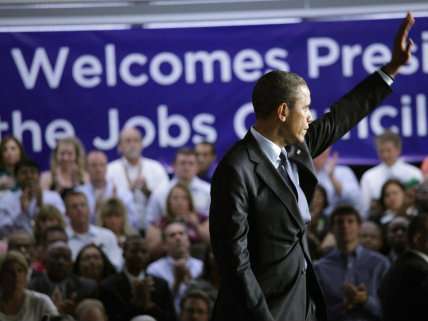CBO Estimates that Obamacare Will Shrink the Labor Force by the Equivalent of 2 Million Jobs

One of the biggest debates about Obamacare has always been whether it would cost the nation jobs, with backers arguing that the labor market effects would be minimal, and critics labeling the law a job killer.
The debate flared up again this week after the Congressional Budget Office (CBO) released a report estimating that the law would shrink America's by the equivalent of about 2 million jobs over the next decade.
The CBO report doesn't quite solve the debate one way or the other. That's because, despite the headline job-loss estimate, the CBO isn't really saying that the law will kill off millions of jobs, in the sense that employers will fire people or eliminate positions in response to the law.
Instead, as with a previous report estimating a labor force reduction equal to about 800,000 jobs, the CBO is estimating that the law will have the effect of causing people to scale back their work hours, or quit work entirely, because the law allows them to do so without losing their benefits.
Based on this estimate, you can definitely say that the U.S. labor force is likely to be significantly smaller a decade from now thanks to Obamacare, that there will be less work performed and fewer people employed as a result of the law. But it won't be because Obamacare made those positions unavailable to people who might have wanted them; it will be because Obamacare created a set of circumstances in which some people chose to leave jobs, or scale back on work hours.
As the CBO says, under the law, "some people would choose to work fewer hours; others would leave the labor force entirely or remain unemployed for longer than they otherwise would."
Obamacare isn't a job-killer, then, so much as a work-killer—a change in the nation's benefits and incentive structure that makes working less desirable for millions of people. And in that sense the report cuts both ways: Conservatives shouldn't argue that the law is responsible for eliminating positions that otherwise would be available, but liberal backers of the law shouldn't pretend that it won't ultimately have the effect of significantly reducing the number of hours and people who work.


Show Comments (163)